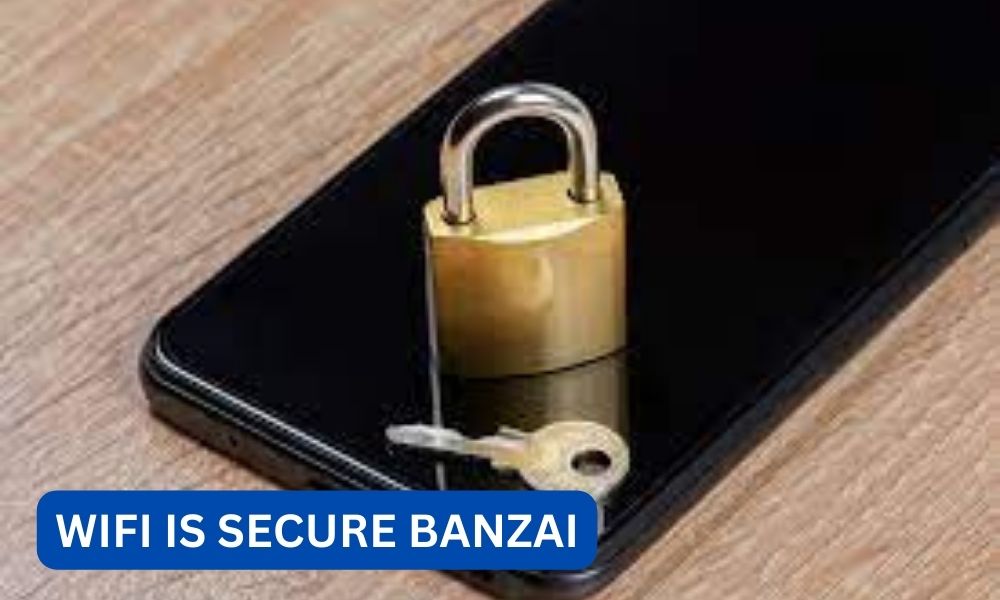WiFi has become an integral part of our daily lives, providing us with the convenience of wireless internet access. However, with the increasing number of cyber threats, it is crucial to ensure that our WiFi networks are secure. One term that you may come across when discussing WiFi security is “secure banzai.” In this article, we will explore what it means if WiFi is secure banzai and why it is important for users to understand and implement secure WiFi practices.
Contents
Understanding WiFi Security
Before diving into the concept of secure banzai, it is essential to have a basic understanding of WiFi security. WiFi security refers to the measures taken to protect wireless networks from unauthorized access and potential threats. When a WiFi network is not secure, it becomes vulnerable to various attacks, such as eavesdropping, data theft, and unauthorized network access.
There are several security protocols and encryption methods available to secure WiFi networks, including WEP (Wired Equivalent Privacy), WPA (WiFi Protected Access), and WPA2 (WiFi Protected Access 2). These protocols use encryption algorithms to scramble the data transmitted over the network, making it difficult for attackers to intercept and decipher the information.
What Does “Secure Banzai” Mean?
The term “secure banzai” is not a widely recognized or standardized term in the field of WiFi security. It is not a technical term used by experts or industry professionals. Instead, it seems to be a colloquial phrase that has gained popularity among some internet users.
Read:Does Family Dollar Accept Apple Pay? All Informations HereWhile the exact origin and meaning of “secure banzai” are unclear, it is often used to describe a WiFi network that is highly secure and protected against potential threats. It implies that the network has implemented robust security measures to ensure the confidentiality, integrity, and availability of the data transmitted over the network.
The Importance of Secure WiFi Networks
Having a secure WiFi network is crucial for several reasons:
- Protection of Personal Information: A secure WiFi network prevents unauthorized individuals from accessing personal information, such as passwords, credit card details, and sensitive documents. This protects users from identity theft and financial fraud.
- Prevention of Data Breaches: In a business or organizational setting, a secure WiFi network is essential to protect sensitive company data and prevent data breaches. Data breaches can lead to significant financial losses, damage to reputation, and legal consequences.
- Prevention of Unauthorized Network Access: A secure WiFi network ensures that only authorized individuals can connect to the network. This prevents unauthorized users from utilizing network resources, hogging bandwidth, or launching attacks on other devices connected to the network.
- Protection Against Malware and Cyber Attacks: A secure WiFi network reduces the risk of malware infections and cyber attacks. It helps prevent attackers from exploiting vulnerabilities in devices connected to the network and spreading malware or launching attacks.
Best Practices for Securing WiFi Networks
To ensure that your WiFi network is secure, consider implementing the following best practices:
Read:Does Ross Take Apple Pay? Latest Information and All Payment Methods- Change Default Network Name (SSID) and Password: The default network name and password provided by the router manufacturer are often well-known and easily guessable. Change them to unique and strong values to prevent unauthorized access.
- Use Strong Encryption: Enable WPA2 or WPA3 encryption on your WiFi network. These encryption protocols provide a higher level of security compared to older protocols like WEP.
- Regularly Update Router Firmware: Keep your router’s firmware up to date to ensure that it has the latest security patches and bug fixes. Check the manufacturer’s website for firmware updates.
- Disable Remote Management: Disable remote management of your router to prevent unauthorized individuals from accessing and modifying its settings.
- Enable Network Firewall: Activate the built-in firewall on your router to filter incoming and outgoing network traffic. This adds an extra layer of protection against potential threats.
- Use a Virtual Private Network (VPN): Consider using a VPN to encrypt your internet traffic and protect your online activities, especially when connecting to public WiFi networks.
Case Study: The Importance of WiFi Security
In 2014, a major retail chain, Target, experienced a massive data breach that affected millions of customers. The attackers gained access to the company’s network through a vulnerable HVAC contractor’s credentials. Once inside the network, they were able to move laterally and access the point-of-sale systems, compromising credit card information and personal data of customers.
Read:How to share prime benefits?This case study highlights the importance of securing not only the primary network but also any connected devices or systems. A weak link in the chain can lead to severe consequences, emphasizing the need for robust WiFi security measures.
Conclusion
While the term “secure banzai” may not have a standardized definition, it represents the importance of having a highly secure WiFi network. WiFi security is crucial for protecting personal information, preventing data breaches, unauthorized network access, and defending against malware and cyber attacks.
By following best practices such as changing default network settings, using strong encryption, updating router firmware, and enabling network firewalls, users can significantly enhance the security of their WiFi networks. Understanding the significance of WiFi security and implementing appropriate measures is essential in today’s interconnected world.









